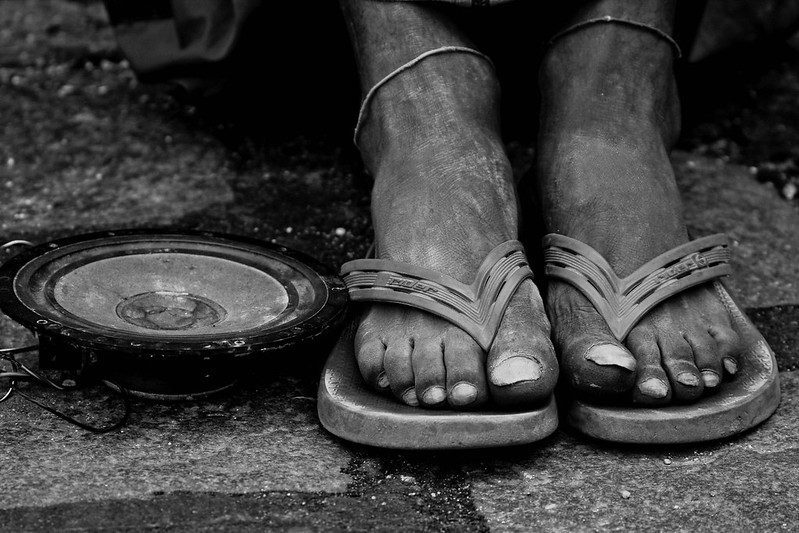Olufolakayomi Christiana Thomas
Lagos State, Nigeria
 |
| Photo by Rui Rocha on Flickr. |
It is a hot Friday afternoon in Lagos, Nigeria. Everyone is gearing up for the weekend and already starting to leave work. The clinic staff does this each week under the guise of attending Friday Jumat prayers, even though the clinic does not officially close for three more hours, and not everyone is Muslim. Nurses are hurrying the doctors along so that they can get home for the weekend.
Even though it is the last day of the week, I am having a busy day. The surgery unit is always busy, but it seems that everybody and their family chose to show up today. I still have not attended to half the patients allotted to me. And I am on call all weekend, while everyone else is excited that it is Friday.
I love being a doctor. I love attending to the needs of patients and talking with other members of the staff. But if I am completely honest, there are days I wish I had chosen another career path. In a country where the doctor-to-patient ratio is 1:10,000, doctors are overworked and underpaid. Showing up as the best version of yourself each day becomes tiring. But today is one of those days where I am making a conscious effort. I want to be the best doctor I can.
An elderly-looking woman walks in with a younger man who I presume is her son. She looks embarrassed, as though she does not want to be at the hospital. They both look slightly unkempt: she is dressed in a worn top and wrapper, he in a washed out t-shirt and black pants. They both wear bathroom flip-flops and such a strong odor surrounds them that I am prompted to open a window. I greet them with a smile and ask about the reason for their visit.
The woman is the patient, and despite her older appearance, she is only fifty-four. She says she has a lump and a sore on her breast. It is clear that they hope it can be treated with a pill or an ointment, and that all will be well.
I perform a detailed exam and discover the ulcer that is the source of the odor. This cannot be cured with a pill or an ointment. This is advanced breast cancer. I explain my working diagnosis and the tests that would be required to confirm it. And that is when I understood the real disease afflicting this woman, who had first noticed a lump in her breast two years ago but could not afford to have it examined: poverty. “Doctor, where will I get the money for all these tests?” she asked. I understood then that she would not be back, that she would lose her life to a disease that could have been cured had she come earlier. Cancer and many other diseases are expensive for a middle-class family in Nigeria, let alone someone living in poverty.
In this country, many people do not have access to one meal per day, let alone health insurance. In this country, people will deny their symptoms rather than come to the doctor because it costs money. In this country, it is cheaper to buy an herbal concoction than it is to get basic medications. In this country, a diagnosis like breast cancer is basically a death sentence. It is a disease itself, this thing called poverty. We do not talk about it enough, because even if we do, it feels like there is little we can do.
After I counseled and dismissed the woman and her son, I shed a few tears and said a silent prayer for them. Some days, like today, that feels like all I can do.
OLUFOLAKAYOMI CHRISTIANA THOMAS is a sixth-year medical student at the Lagos State University College of Medicine in Lagos State, Nigeria. She is passionate about writing and storytelling and hopes to specialize in psychiatry.
Submitted for the 2022–23 Medical Student Essay Contest

Leave a Reply